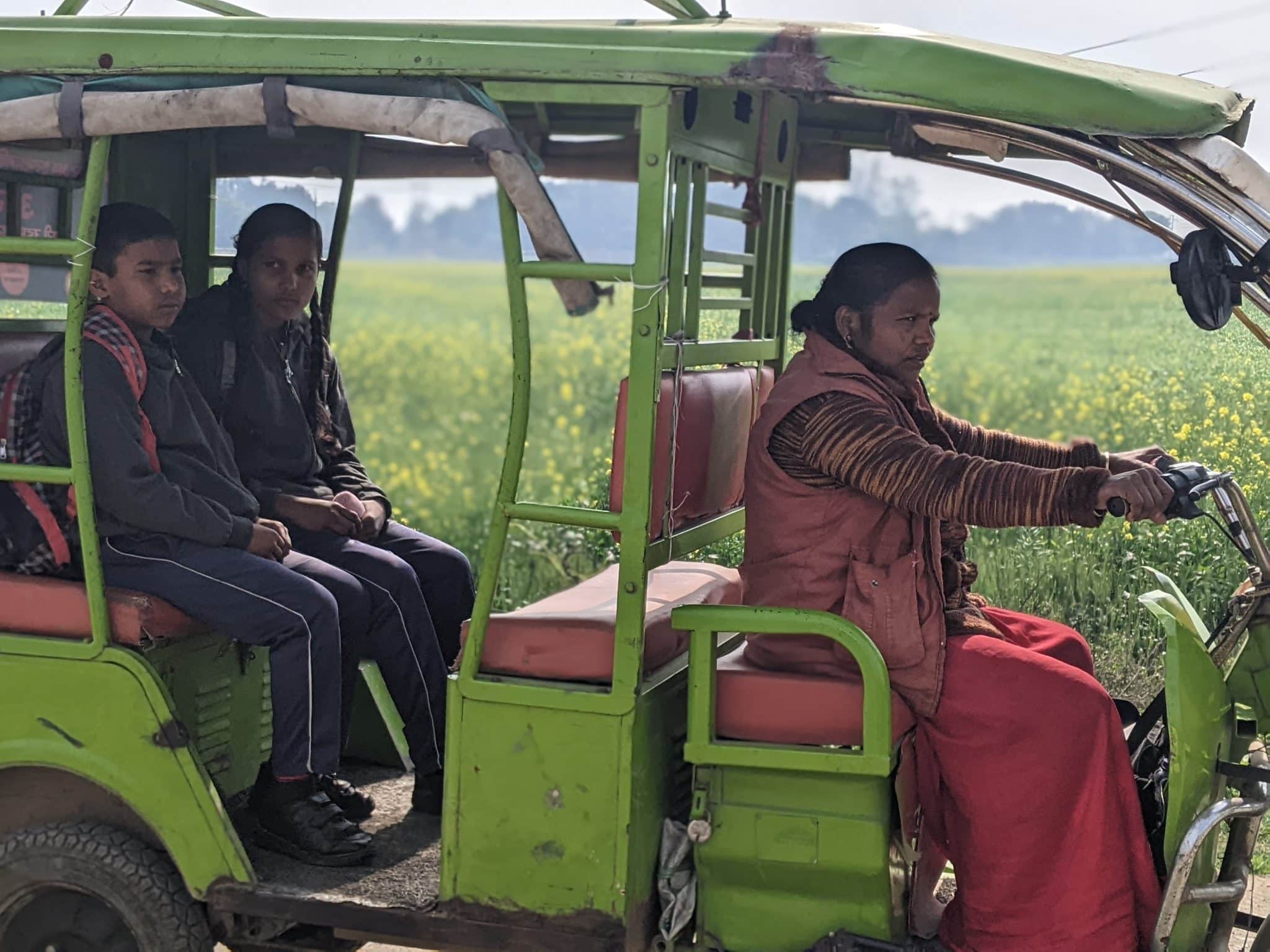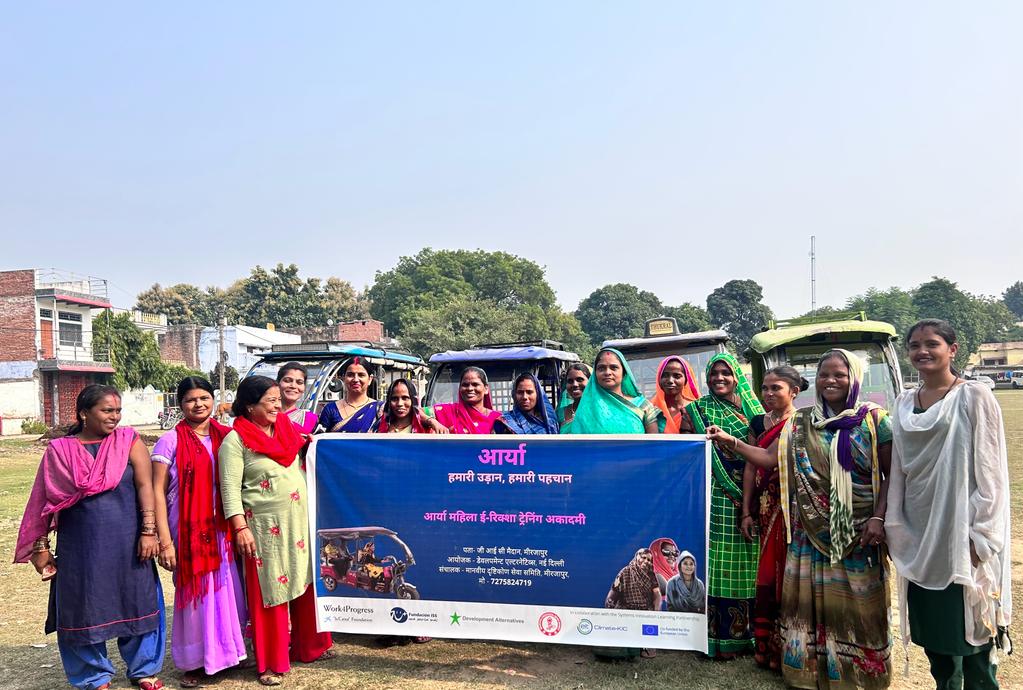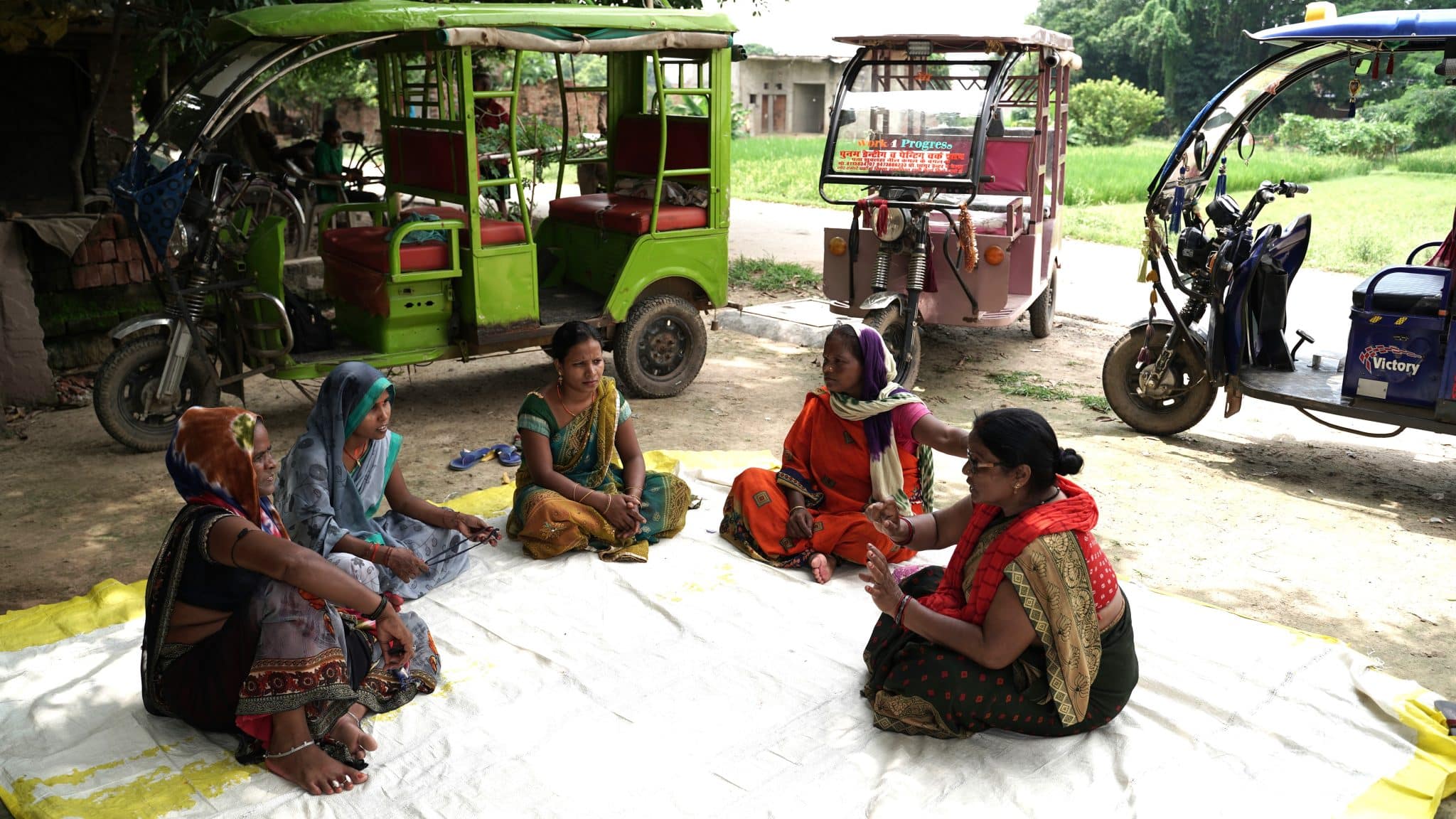Can systems innovation make transport safer for Indian women?

Women across India face significant challenges when using public transport. A recent study revealed that 56 per cent of women reported sexual harassment while travelling, while 52 per cent of women declined education or employment opportunities due to safety concerns on their commute. Given these statistics, it is no surprise that India has one of the lowest labour force participation rates for women in the world.
In cities, the challenges are pronounced, but the situation is even worse in rural areas. Here, poverty and patriarchal norms further restrict women’s mobility, which in turn, limits their economic prospects and perpetuates generational disempowerment. Women in some rural areas are regularly forbidden to show their faces, step out of their houses, or pursue educational opportunities. This makes them vulnerable to domestic violence and further preserves their dependence on male family members.
Our organisation, Development Alternatives (DA), is taking radical steps to address these issues in India. We support local women entrepreneurs as e-rickshaw drivers in the state of Uttar Pradesh and since its inception in 2018, the project has developed a model for how low-carbon transportation can improve safety, empower women and reduce carbon emissions. In 2022, DA took part in the Systems Innovation Learning Partnership’s (SILP) Experimentation Fund – a collaboration between Climate KIC and the Swedish International Development Cooperation Agency (Sida) and we scaled from 10 to 100 e-rickshaws. SILP’s funding was instrumental in building the ecosystem for safe mobility, scaling the prototype, and supporting continuous learning and experimentation.
The programme started with Pragya Devi, who expressed her passion for riding motorcycles during a community meeting organised by DA. Following this, Pragya co-created an e-rickshaw business model that provided safe transportation for women and girls while encouraging more female drivers. Today, the programme has expanded to include 100 women drivers, known as ‘Aarya,’ who serve over 100,000 women and girls in both the Mirzapur and Bhadohi districts of Uttar Pradesh, a state in northern India.

Pragya Devi providing safe transportation to schoolchildren.
Change has been significant. Women who previously hesitated to leave their homes now provide secure transportation to other women in the area and have even partnered with local schools to increase student mobility. As a result, the programme has improved household incomes – allowing many women to enrol their children in schools, acquire additional e-rickshaws, and even build new homes. More recently, the network of women drivers has come together to form solidarity groups, such as Aarya Manch, in order to improve dialogue with local partners. Through collective action, they have established a driving school where certified drivers provide e-rickshaw training for newcomers.

At the launch of the first women-led driver training academy, Mirzapur.
Being part of the SILP Experimentation Fund cohort was crucial for the success of this programme. In addition to the much-needed funding, the regularly facilitated cohort sessions provided us with the space to learn as we continued to innovate within our experiment. Learning about emerging narratives from different system actors allowed us to listen deeply to the needs of the women and respond to the challenges they faced. One such outcome was the establishment of the first women-owned battery charging station in Mirzapur, which was created to address technical issues present in the conventional batteries used in e-rickshaws.
Our experimentation team was closely involved in the sensemaking workshops organised by the SILP team. This process taught us to take a step back, reflect, and rethink ways of engaging with system actors in our experiment. One example is how we had to carefully balance power dynamics between the Road Transport Office and women e-rickshaw drivers during negotiations on the distribution of driving licenses.

E-rickshaw drivers meeting to connect and share experiences.
The success of this initiative suggests that similar programmes could be implemented nationwide to address the issue of women’s safety in public transport. Scaling up this programme could have a profound impact on the lives of women across India and allow them to participate in the workforce and public life. By prioritising women’s safety and mobility, these projects can dismantle the obstacles that impede women’s progress and promote gender equality – not only benefitting the female population but also contributing to the overall development and prosperity of society.
If you’re curious to learn more, listen to this episode of Climate KIC’s ‘How Could We?’ podcast on Apple Podcasts or Spotify, in which Shrashtant Patara and Kanika Verma from Development Alternatives share their experiences of being part of the Systems Innovation Learning Partnership.
